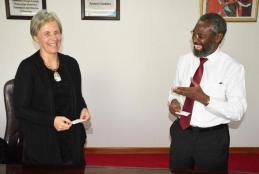Prof. Kiama to chair ESA ACU Regional Committee
The University of Nairobi Vice-Chancellor, Prof. Stephen Kiama has been appointed to serve as the Chairperson of the newly formed East and Southern Africa (ESA) Regional Committee of the Association of Commonwealth Universities (ACU).



